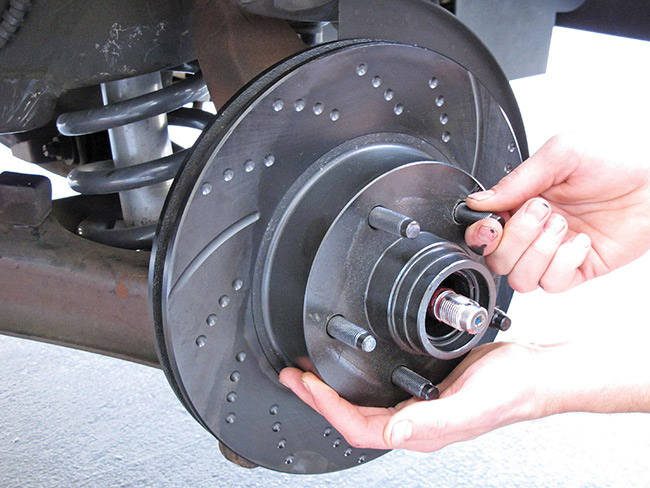Brakes are a vital part of the car. They could be the difference between you hitting a tree and making it safely to your destination. They should be at their best at all times because faulty brakes are a recipe for disaster.

How Brakes Work
When you step on your car’s brakes, the cylinder that delivers brake fluid is activated and the brake pads are engaged. When the calipers engage the brake pads, they send the right amount of pressure to the rotors, which then create the friction needed to stop the car. The braking system is connected, and all the components have to be well coordinated for the system to work as at its best. If one of them fails, then the entire system collapses.
Brake Inspection
A brake inspection entails looking into the braking system for any current problems and potential concerns that might limit the system’s ability to work at its best. Just like you go to the doctor’s every year for your annual check-up, so should your brakes. Having an annual brakes inspection is beneficial to you as it gives you peace of mind to enjoy your car without any concern. Again, it saves you from spending a lot of money on problems that were not foreseen. During the check, any potential disaster is combated before it becomes a bigger issue that could cost you hundreds of dollars.
The things that are checked during a brake inspection include:
- Calipers
- Pads and rotors
- Brake fluid and its condition
- Grease seals and wheel bearings
- Hoses and parking brake cables
- Wheel cylinders
- Hardware
Terms
- Brake Pads
They are the parts responsible for being in contact with the rotors and for applying friction to stop the car.
- Rotor
It is connected to each tire and for the car to stop, the rotor must spinning. The friction applied on the brake pads stops the spinning.
- Calipers
They contain pistons that help move the brakes. The pistons have to be in place for them to work in perfect coordination.
- Brake fluid
This is an integral component of the brake system. The pressure generated on brake fluid lines sends energy to the brake parts so that they can work together to stop the car. If the brake fluid in your car is leaking, then your braking system will either not work as well as it should, or it will stop working altogether. You must know how scary it would be to be on the highway with failed brakes.
Brakes Maintenance 101
- Always ensure that you have a full cylinder of brake fluid.
- Take your car for regular check-ups to be certain that your brake system is performing at its best at all times.
Pay attention to your car-If you are attentive while driving, you may catch most of the smaller issues before they boil over. Most brake problems start small, and if they are checked regularly, you may never have to know what a real breakdown looks like.
Written by Marc Laferierre, owner of Dents Unlimited.

